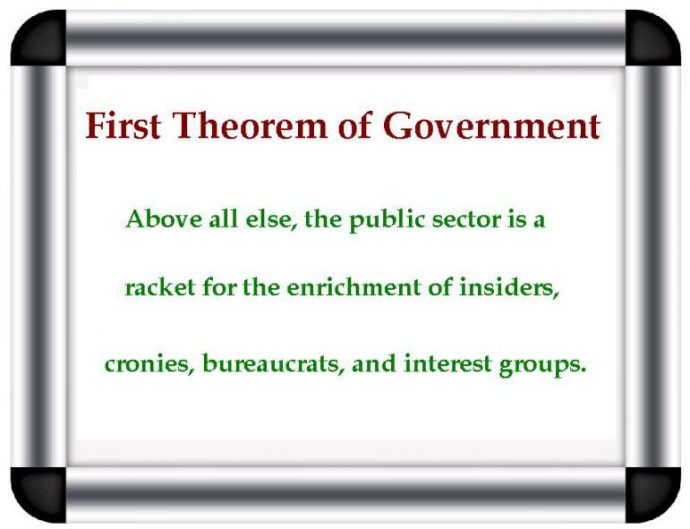Here is Daniel Mitchell writing at Conservative Republican News on one of the most important topics there is when it comes to politics and policy:
In hopes of learning some lessons, let’s take a tour through the dank sewer of government, the place where malice is rewarded and malfeasance is a stepping stone to success.
Writing for the Washington Post, Professor Stephen Medvic argues that America’s political system is mostly clean.
…there is very little political corruption in the United States. …According to Transparency International’s 2015 Corruption Perceptions Index, a survey of expert opinion about the level of corruption in 167 countries, only 15 countries were judged to be cleaner than the United States. …our score of 76 (out of 100) was considerably higher than the average score of 67 in the European Union and Western Europe.
But before concluding that Mr. Medvic is a crazy crack addict, he is using a very narrow definition of corruption in the above excerpt, focusing on politicians who trade votes for under-the-table money that goes into their personal bank accounts.
Using a broader definition, there’s a different conclusion.
…corruption happens whenever there is a privileging of private interests over the public good in the policy making process. Under this interpretation, while elected officials may not be reaping private benefit from their positions of power, they are placing the (private) interests of some subset of the public above the collective interests of the people as a whole. When a politically powerful industry gets public subsidies or a well-connected corporation receives a special tax break, it suggests to some that the system has been corrupted.
And from this perspective, corruption is rampant.
Here are six examples.
First, Veronique de Rugy of the Mercatus Center describes how a Louisiana politician (gee, what a surprise) wants to use government coercion to hinder competition in the market for contact lenses.
An estimated 40 million Americans wear contact lenses. That’s a $4 billion industry. Thanks to the heavy-handed government regulation of all things health care, contacts already cost more than they should. However, if an ongoing effort to reduce competition through government cronyism were to succeed, costs might soon rise even more. …a bill was introduced by Sen. Bill Cassidy, R-La., called the Contact Lens Consumer Health Protection Act of 2016, which would place pointless and costly new mandates on sellers and eliminate market competition. …it would require dedicated phone lines and email addresses for prescribers to communicate questions to sellers about the prescriptions the sellers need them to verify before the sellers are allowed to fill orders. …With this move, these special interests demonstrate that they would rather avoid the grind of competition, which requires that companies deliver high-quality goods at low prices to consumers. Instead, they’re trying to rig the system to force consumers into paying more for less.
Paying more for less? Maybe that should be Washington’s motto, though it’s hard to argue with the existing motto.
Read more: Conservative Republican News
Image credit: DanielJMitchell.wordpress.com.

